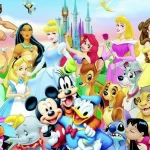La vita è bella (1997)

La vita è bella (Life is Beautiful), directed by and starring Roberto Benigni, is an unforgettable masterpiece that blends humor, tragedy, and the human spirit in one of the most emotionally powerful films ever made. Set during World War II, this Italian film tells the story of Guido Orefice, a charming and imaginative Jewish-Italian man who uses his wit and humor to protect his son from the horrors of the Holocaust.

The film is divided into two parts: the first showcases the joyful and quirky love story between Guido and Dora (played by Nicoletta Braschi, who is also Benigni’s real-life wife), and the second follows the heartbreaking efforts of Guido to shield their young son, Giosué, from the cruelty of the concentration camp. With its unique approach, La vita è bella takes a sensitive and horrific subject and paints it with warmth, hope, and the resilience of the human heart.
Key Highlights:
-
Roberto Benigni’s Performance: Benigni’s portrayal of Guido is nothing short of brilliant. His boundless energy, infectious optimism, and ability to infuse humor into even the most dire of situations are what make Guido a truly memorable character. He manages to balance the film’s lighter comedic moments with the darker themes of war and loss, creating a performance that is both heartwarming and gut-wrenching. Benigni won an Academy Award for Best Actor for this role, and rightfully so.
- https://www.youtube.com/watch?v=IYRBcuNkTb8
-
The Power of Humor: What sets La vita è bella apart from other films set during the Holocaust is its innovative use of humor. Guido’s ability to turn the horrific experiences of the concentration camp into a game for his son is both heartwarming and heartbreaking. Through this, the film explores the power of imagination and the lengths a father will go to protect his child, even when the world around them is collapsing. It’s a brilliant commentary on how humor can be a form of resistance in the face of unimaginable tragedy.
-
Themes of Love, Family, and Sacrifice: At its heart, La vita è bella is a film about love and sacrifice. The relationship between Guido and Dora is pure, passionate, and filled with joy, and Guido’s determination to protect Giosué from the horrors of war is deeply moving. The film explores how love can be both a source of strength and a powerful weapon against despair. Even in the most dire circumstances, Guido’s love for his son fuels his resilience.
-
Visuals and Direction: Benigni’s direction is masterful, transitioning smoothly between the comedic and tragic elements of the story. The cinematography is beautiful, with sweeping shots of the Italian countryside and intimate close-ups of the characters’ faces, capturing the film’s emotional depth. The first part of the film is colorful and light, reflecting Guido’s vibrant personality, while the second part takes on a darker, more somber tone, mirroring the increasingly dire situation the characters face.











